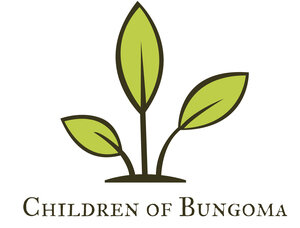In a country where corruption is already heard, elections cause that chatter to become a scream. Kenya has a history of violent elections. This violence largely goes back to the days of colonialism when tribes were forced to live together, under one country - one government. The violence spurs between tribes with citizens tending to vote for those candidates whom are members of their given tribe. The 2007 election brought about the worst violence with more than 1,000 people killed and about 600,000 displaced from their homes.
Children of Bungoma is seeing the effects of the impending elections first hand. There is no milk or sugar. We are buying products, especially food, at a higher price than normal. And we are having to spend more money on transportation to get these food items, as they are scarce in the rural area where our house is located.
This year is an election year, which means the living climate in Kenya is tense and tough. Here are 5 things to know about the current Government and Economy:
1. Inflation is up 12 percent.
Kenyan's economic growth has been consistently steady for the past five years, with an average of about 5% each year. However, basic goods like milk, sugar, bread and maize flour have raised in price. Inflation is now up 12% and many families are now reporting that they are struggling to get by.
Companies, such as sugar manufacturers, are holding out on their product. Instead using the money they would normally spend on production of their product, they are instead spending that money on contributions to the political candidate they support. This is a major contributor to why items are either scarce or absent.
2. Four out of 10 people are unemployed.
According to the UN's development agency (UNDP), Kenya has the highest unemployment rate in the region. Election years tend to cause a shrinkage in the economy, often leading some companies to cut down employment as investors wait out on the election period.
3. Kenya is ranked as 31st most corrupt out of 176 countries.
Transparency International ranked Kenya at a position of 145 out of 176 countries in it's 2016 report. The organization blamed the low rating on the incompetence and ineffectiveness of anti-corruption agencies that fail to punish those participating in graft (unscrupulous use of a politician's authority for personal gain).
4. President Uhuru Kenyatta's administration has been called "the most corrupt in Kenya's history".
John Githongo, founder of the Kenyan branch of Transparency International, has called President Uhuru Kenyatta's administration the "most corrupt in Kenya's history". Several reported scandals have been cited involving alleged inflation of costs of projects and payments to phantom companies.
5. Kenyans have been using the hashtag #CostOfLivingKe
The cost of living in Kenya has become such a burden on the livlihood of those living there that citizens are starting to use the hashtag CostofLivingKe to show the differences in the cost of items now versus before the election campaigns started.
HELP US MAKE IT THROUGH THIS ELECTION YEAR BY DONATING TO CHILDREN OF BUNGOMA!!
Without YOU our children will not be able to eat, forcing them back to streets. Our work is important. Our success is astonishing. Your donations will help us through this rough patch. It is the only way we will endure.
Asante Sana!


